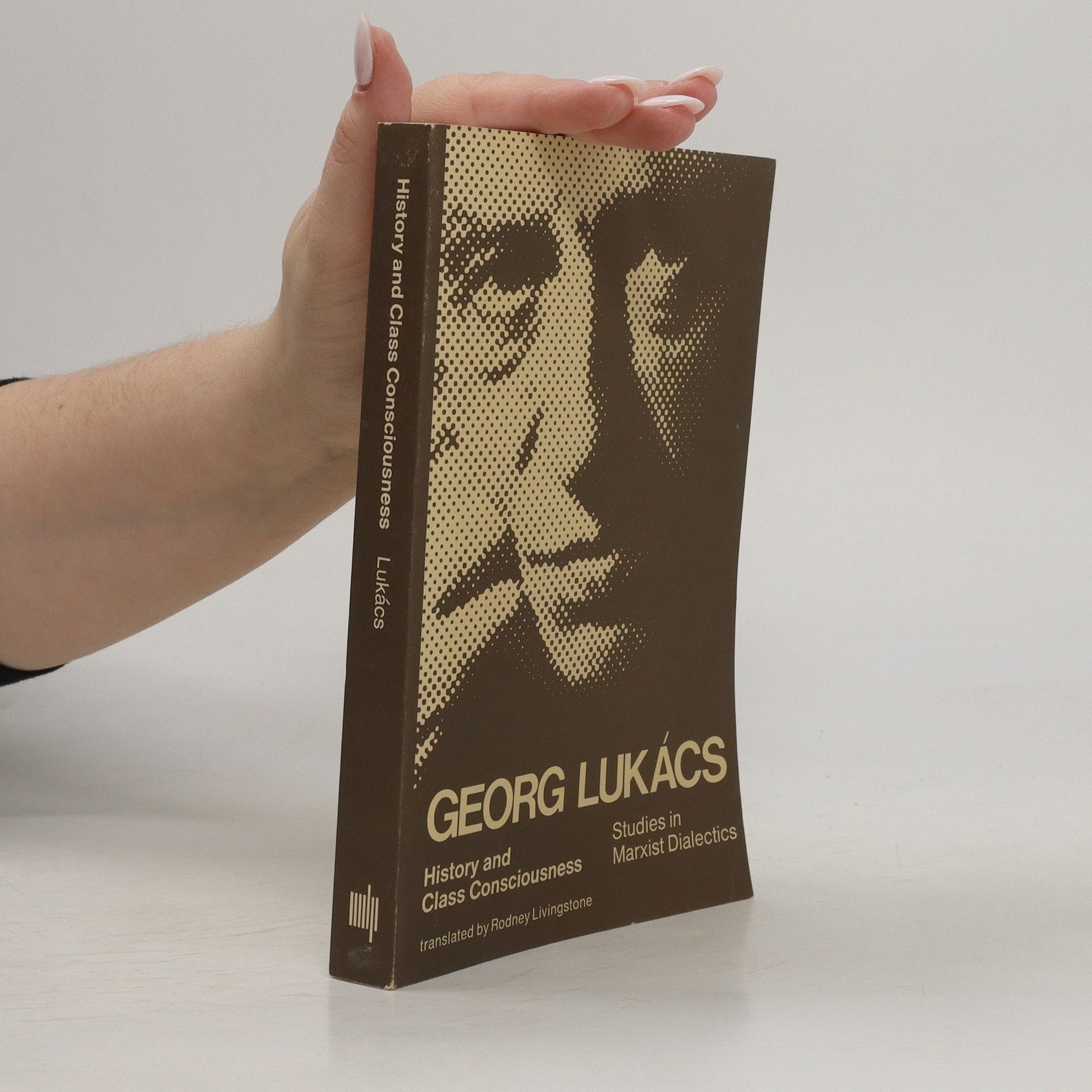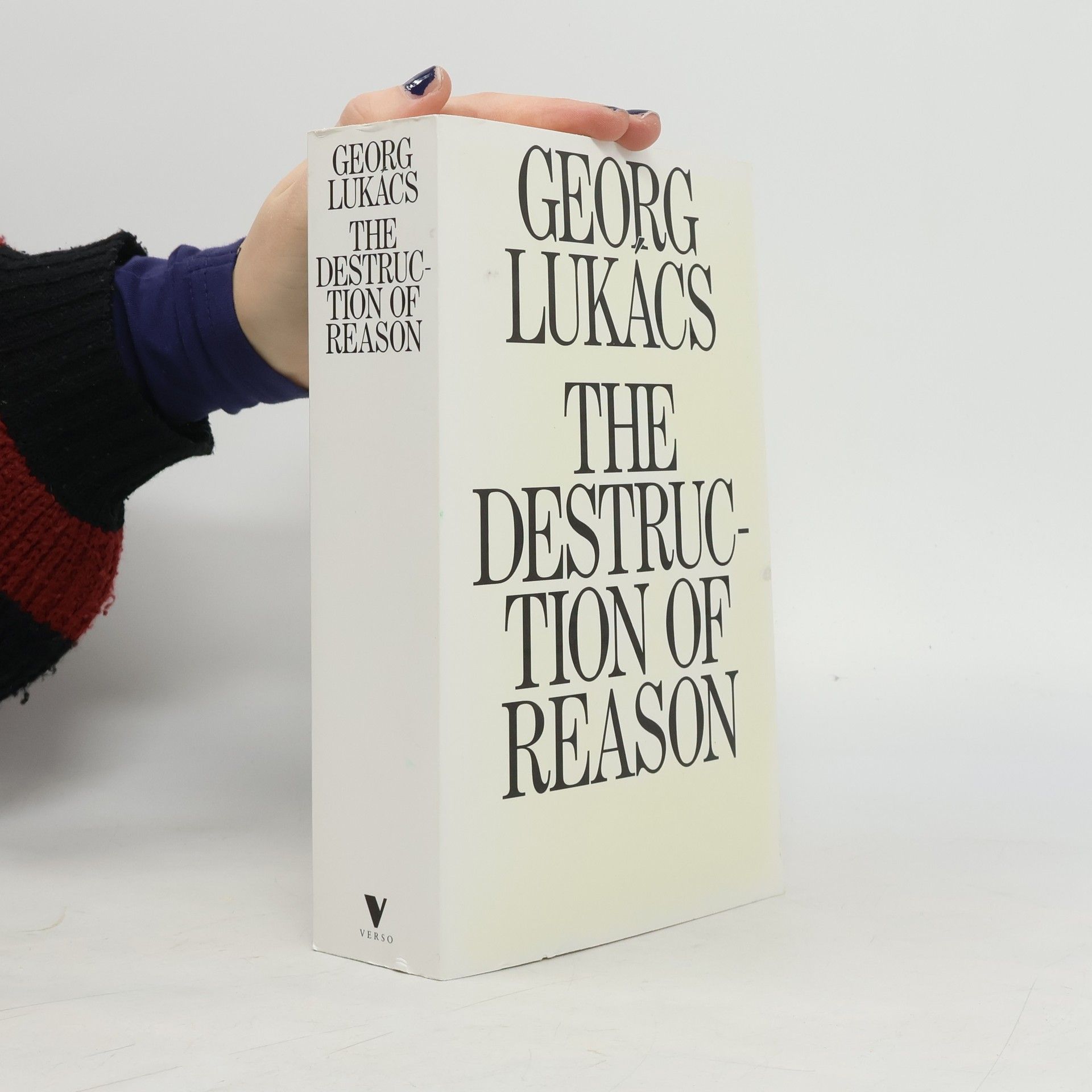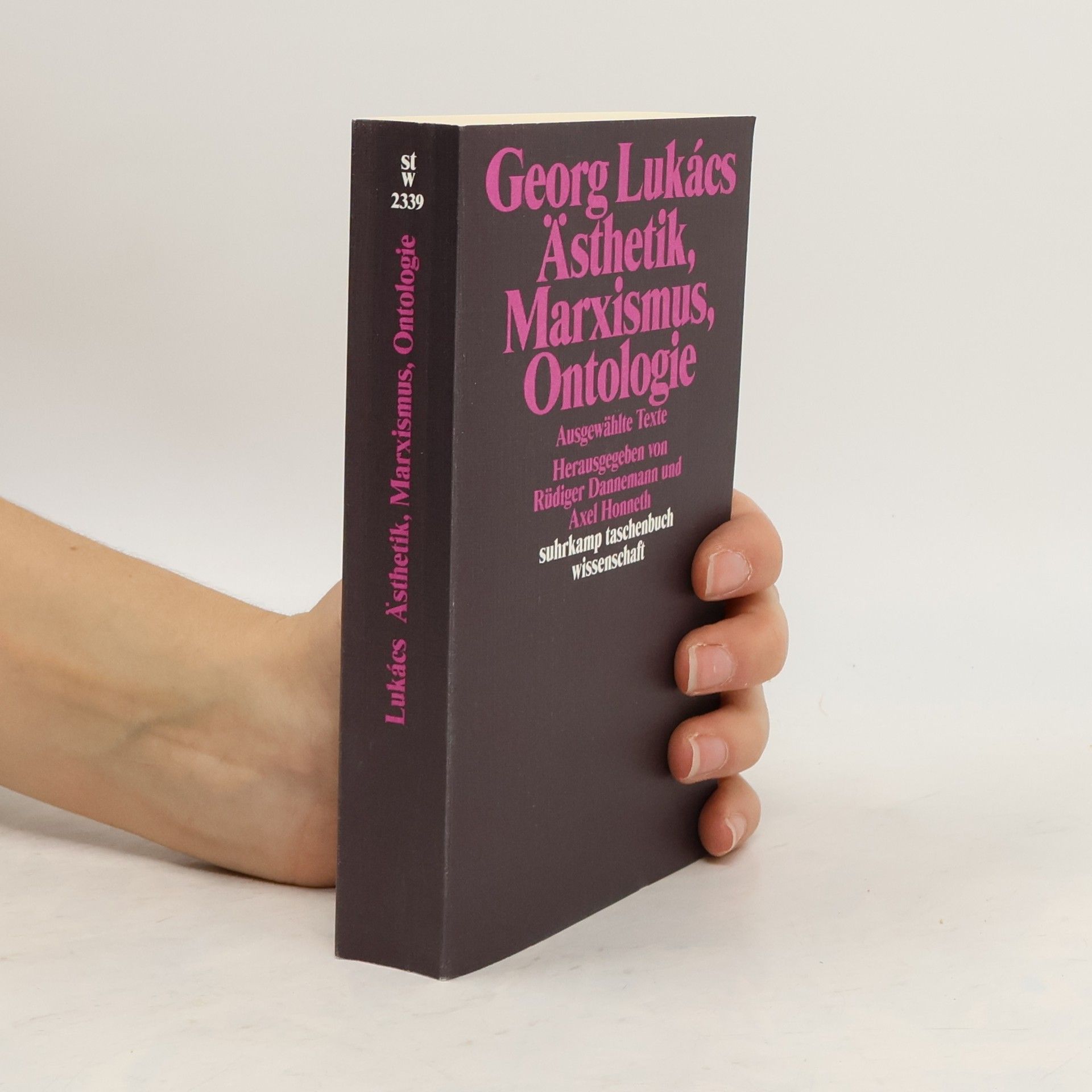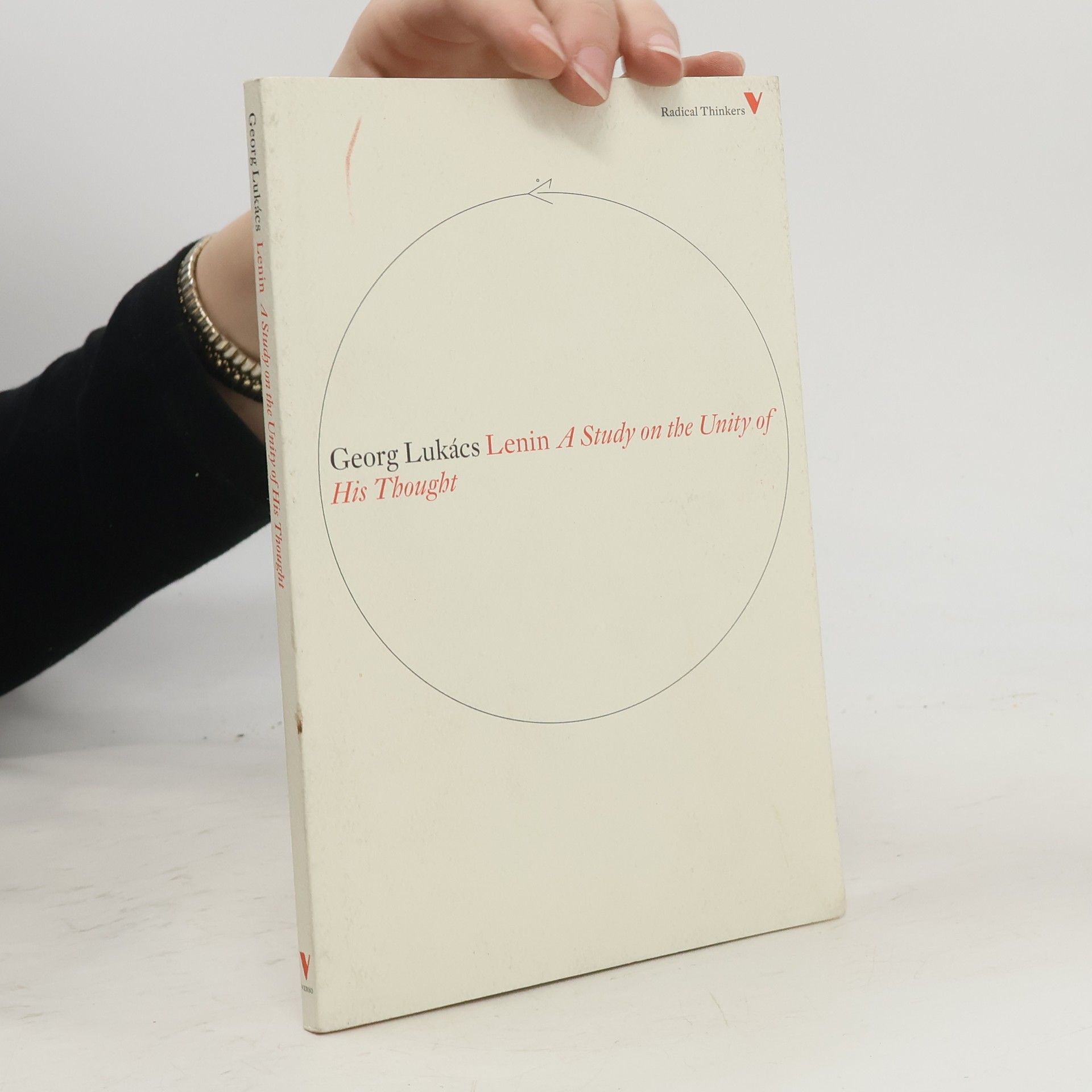György Lukács (1885–1971) byl významný maďarský filosof a estetik, jehož dílo významně přispělo k západnímu marxismu a ovlivnilo i východní marxismus, zejména marxistický humanismus. Věnoval se literární teorii, estetice, realismu, teorii filmu, kritice existencialismu a fenomenologie, marxistické metodologii a sociální ontologii. Kniha Lenin, napsaná po Leninově smrti v roce 1924, vznikla během Lukácsova exilu ve Vídni po porážce Maďarské republiky rad. Byla přeložena do téměř dvaceti jazyků, včetně češtiny. V roce 1970 měla vyjít v překladu Lubomíra Sochora v Československu, avšak cenzurní zásah vydání znemožnil. Kniha tak vychází v češtině téměř sto let po svém původním vydání. Lukács v ní pokračuje ve snaze teoreticky formulovat principy marxistické metody. V předmluvě k německému vydání z roku 1967 uvádí, že obnovený zájem o jeho knihu v šedesátých letech byl podmíněn marxistickou kritikou Stalinova období a zájmem o opoziční tendence dvacátých let. Dnes je kniha důležitým historickým pramenem, který osvětluje Lukácsovo myšlení a vztah mezi politickou teorií a akcí na příkladu Lenina.
Georg Lukács Book order (chronological)
György Lukács was a Hungarian Marxist philosopher and literary critic, seminal in the development of Western Marxism. His work departed from Soviet ideological orthodoxy, exploring concepts such as reification and advancing Marxist theories on class consciousness. Lukács's literary criticism profoundly influenced understandings of realism and the novel as a genre. He was also a key philosopher of Leninism, formalizing vanguard-party revolution.







The Destruction of Reason
- 896 pages
- 32 hours of reading
A classic work of Western Marxism, now back in print.
Georg Lukács
Texte zum Theater
Georg Lukács gehört zu den herausragenden Denkern des 20. Jahrhunderts. Seine Schriften sind ein Schlüssel zur Ideengeschichte der Moderne und bieten auch Ansätze für die Gegenwart. Ein Bezug auf das Theater durchzieht sein gesamtes Schaffen. Doch die Rezeption seiner Werke ist gekennzeichnet von Brüchen. So war Lukács’ differenzierte Ästhetik für marxistische Dogmatiker im Osten in ihrem Beharren auf einen maßgeschneiderten sozialistischen Realismus nicht immer wohlgelitten. Auch im Westen erfreute er sich nur für kurze Zeit einiger Popularität. Entsprechend sind viele Schriften einem breiten Publikum unbekannt. Dieser Reader mit Texten zum Theater, der zu Lukács’ 50. Todestag erscheint und einen vorurteilsfreien Blick ermöglichen soll, macht schwer erhältliche Beiträge wieder zugänglich und erstveröffentlicht auch Fundstücke aus den Archiven. Eine Einleitung von Dietmar Dath bezeugt die ungebrochene Relevanz des Denkens von Lukács.
Ästhetik, Marxismus, Ontologie
Ausgewählte Texte
Georg Lukács war einer der großen Intellektuellen des 20. Jahrhunderts und gilt weithin als der bedeutendste Philosoph in der Geschichte des Marxismus. Der vorliegende Band erschließt anhand einer Auswahl seiner Schriften, darunter auch viele weniger bekannte Texte, seine theoretischen Stationen: Von den frühen ästhetischen Versuchen über die für den westlichen Marxismus bedeutsame Praxisphilosophie der mittleren Periode bis hin zur noch zu entdeckenden Ontologie des Spätwerks. Auf diesem Weg entsteht das Bild eines engagierten Denkers, dessen Radikalität, systematische Fassungskraft und Mut zur Selbstkorrektur noch heute beeindrucken.
Dějiny a třídní vědomí: Studie o marxistické dialektice
- 540 pages
- 19 hours of reading
Kniha je souborem volně navazujících esejů maďarského marxistického filosofa Györgyho Lukácse, které sepsal v letech 1919 až 1921, když byl po pádu Maďarské republiky rad nucen žít v exilu. Jednotlivé eseje spojují dva motivy. Jednak snaha objasnit metodologické jádro marxismu jako teorii společnosti a dějin a jednak pokus o rozvržení teorie kolektivní akce, jejíž krajní podobou je revoluce. Český překlad Lukácsovy knihy pořídil koncem 60. let minulého století Lubomír Sochor, poprvé však vychází až nyní.
■ Einleitung: Die Grablegung des alten Deutschland ■ Gottfried Keller ■ Wilhelm Raabe ■ Der alte Fontane ■ Enzyklopädisches Stichwort: Bemerkungen zu Literatur und Politik ■ Quellennachweis ■ Personen- und Sachregister ■ Verzeichnis der erwähnten Werke
Die Seele und die Formen
Essays
„Es ist richtig, nach der Wahrheit strebt der Essay: doch wie Saul, der da ausging, die Eselinnen seines Vaters zu suchen und ein Königreich fand, so wird der Essayist, der die Wahrheit wirklich zu suchen imstande ist, am Ende seines Weges das nichtgesuchte Ziel erreichen, das Leben.“ Georg Lukács Der Band enthält im Anhang den Lukács-Essay „Von der Armut am Geiste“, der zuerst 1914 erschienen ist und hier erstmals wieder nachgedruckt wird.
Out of the chaos following Lenin’s death and the mounting fury against Lukács and his freshly penned History and Class Consciousness (1923), this book bears an assessment of Lenin as “the only theoretical equal to Marx.” Lukács shows, with unprecedented clarity, how Lenin’s historical interventions — from his vanguard politics and repurposing of the state to his detection of a new, imperialist stage of capitalism — advanced the conjunction of theory and practice, class consciousness and class struggle. A postscript from 1967 reflects on how this picture of Lenin, which both shattered failed Marxism and preserved certain prejudices of its day, became even more inspirational after the oppressions of Stalin. Lukács’s study remains indispensable to an understanding of the contemporary significance of Lenin’s life and work.
Aesthetics and Politics
- 224 pages
- 8 hours of reading
An intense and lively debate on literature and art between thinkers who became some of the great figures of twentieth-century philosophy and literature




